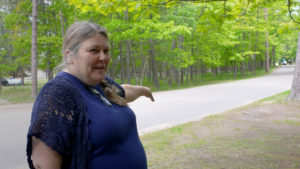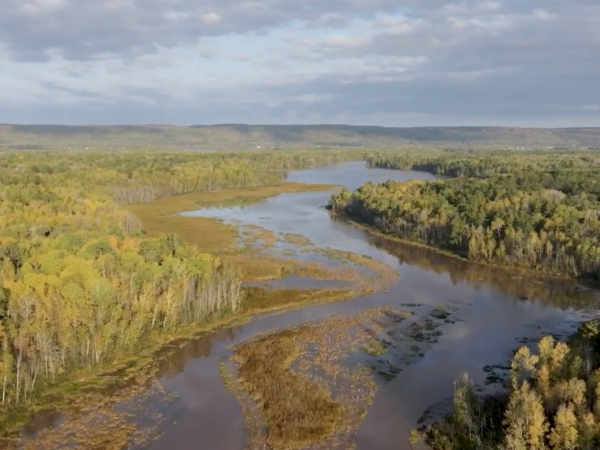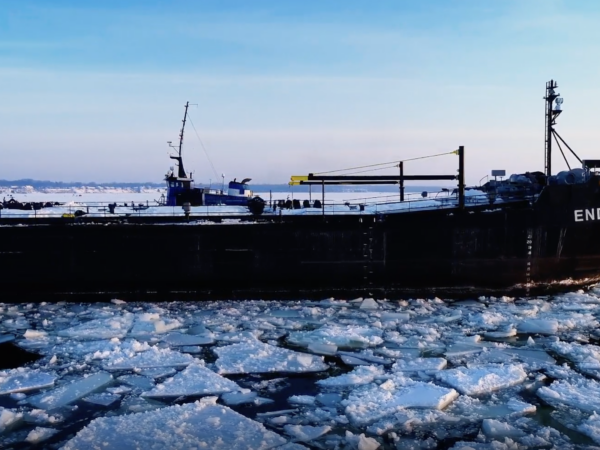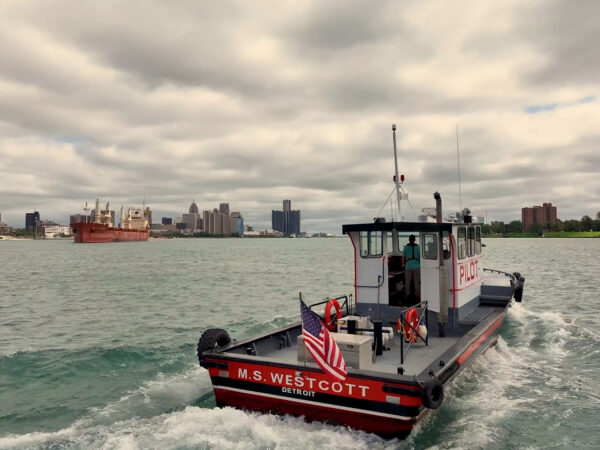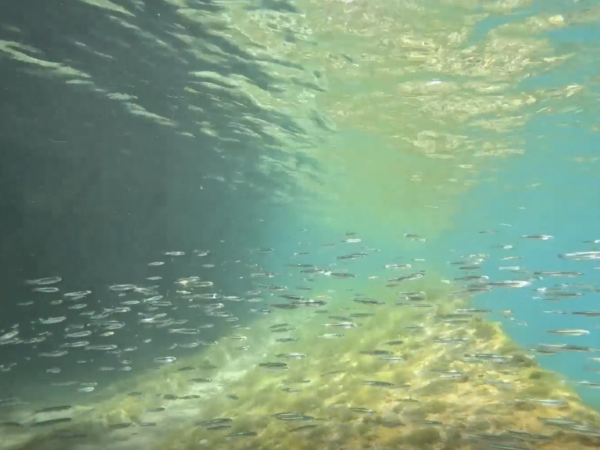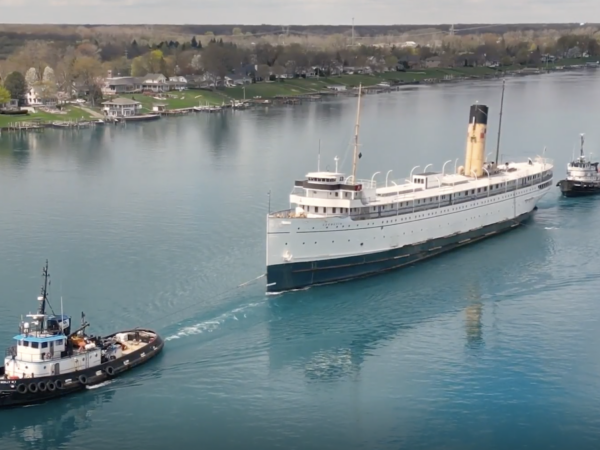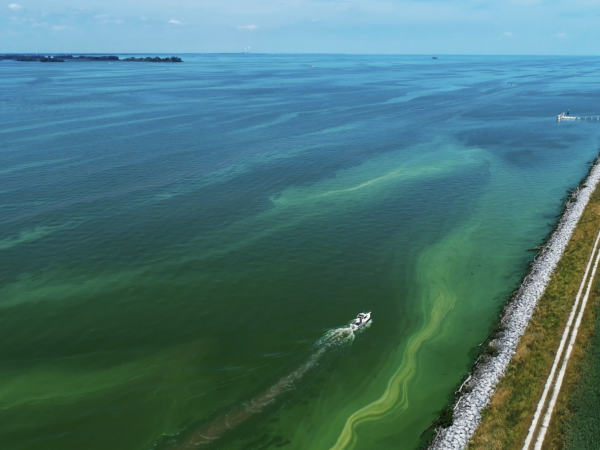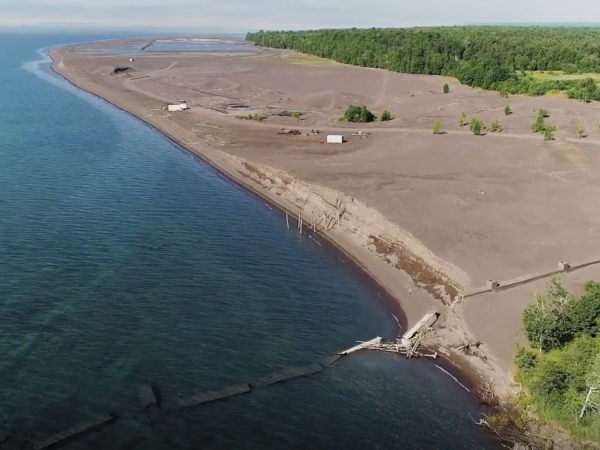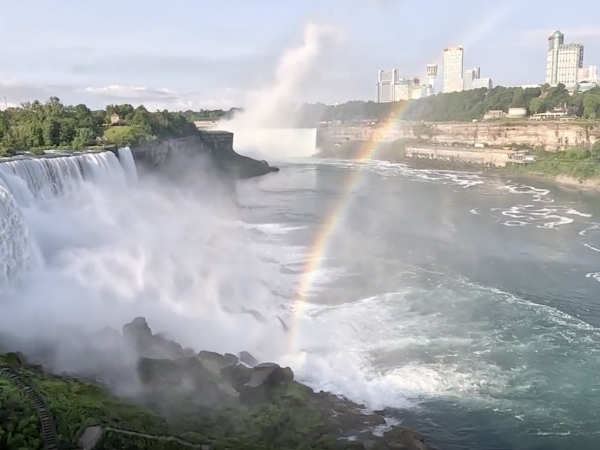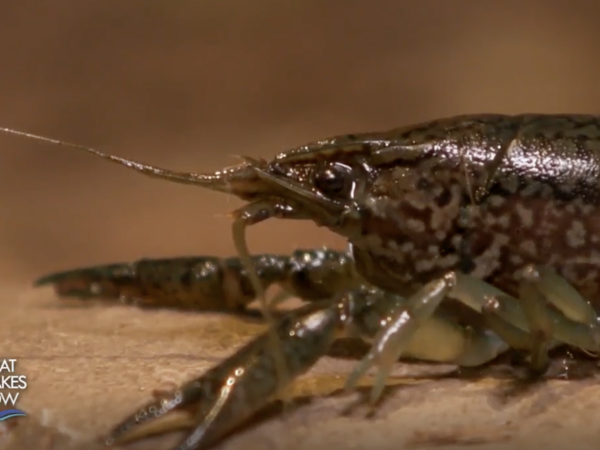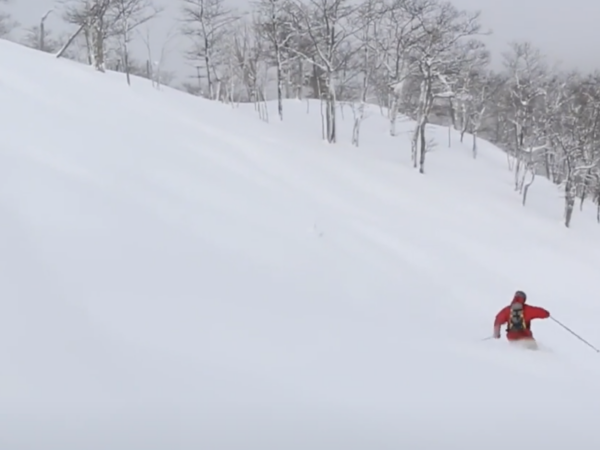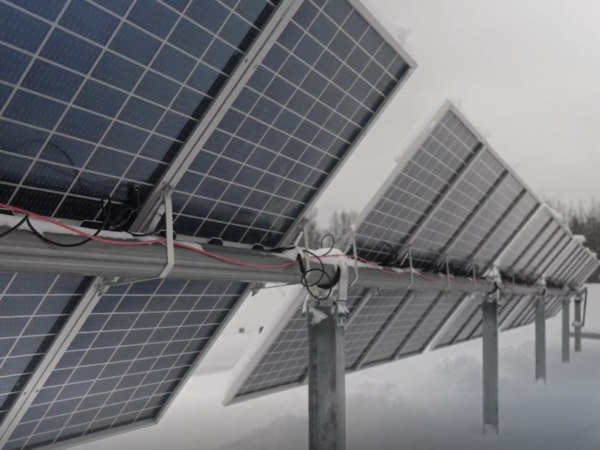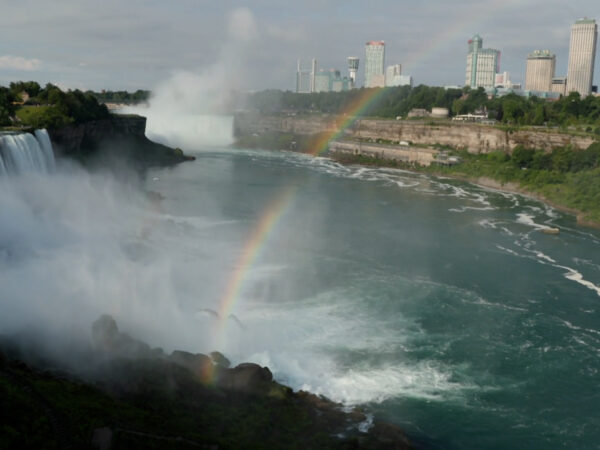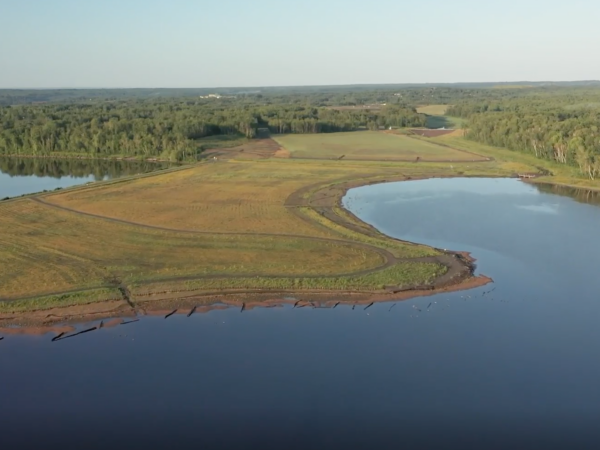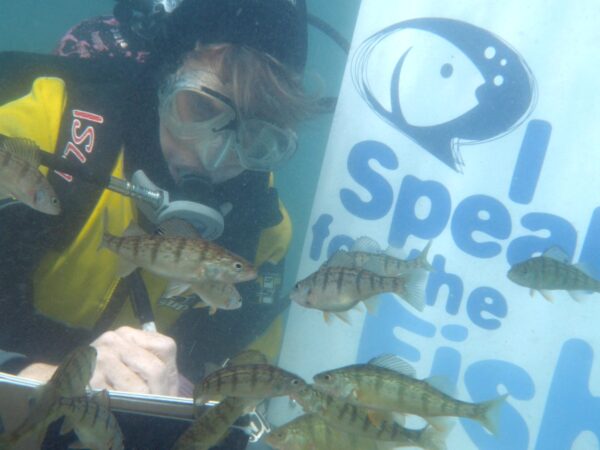IN THIS EPISODE:
A town in Michigan’s Upper Peninsula takes action to save the blue-spotted salamander, a look at whether Great Lakes ports could be the key to easing congestion in global shipping, and The Catch explores whitefish recruitment in the Great Lakes, ecological resilience in Toronto and ancient white cedars on the limestone cliffs of Michigan’s Fayette Historic State Park.
WHERE WE TAKE YOU IN JULY
GREAT LAKES LEARNING:
Explore this month’s hands-on lesson plans designed to help your middle schoolers understand the Great Lakes — all at home or in the classroom. They’re aligned to education standards AND free to download.
Lesson Plans
Have a question about the Great Lakes or life in the region?
Ask Great Lakes Now, and if we can answer it, we might loop it into our coverage so others can learn too.
Submit Your Question
When to Watch?
Check your local station for when Great Lakes Now is on in your area.
Premieres on DPTV
Wednesday, July 27, at 7:30 PM
STATIONS CARRYING THE SERIES
DPTV
Detroit, Michigan
WEAO
Akron, Ohio
WNEO-TV
Alliance, Ohio
WCML-TV
Alpena, Michigan
WDCP-TV
Bad Axe, Michigan
BCTV
Bay County, Michigan
WBGU-TV
Bowling Green, Ohio
WNED-TV
Buffalo, New York
WCMV-TV
Cadillac, Michigan
WTTW-TV
Chicago, Illinois
WVIZ-TV
Cleveland, Ohio
WKAR-TV
East Lansing, Michigan
WQLN-TV
Erie, Pennsylvania
WCMZ-TV
Flint, Michigan
WGVU-TV
Grand Rapids, Michigan
WPNE-TV
Green Bay, Wisconsin
WGVK-TV
Kalamazoo, Michigan
WHLA-TV
La Crosse, Wisconsin
WHA-TV
Madison, Wisconsin
WNMU-TV
Marquette, Michigan
WHWC-TV
Menomonie-Eau Claire, Wisconsin
WMVS-TV
Milwaukee, Wisconsin
WCMU-TV
Mt. Pleasant, Michigan
WLEF-TV
Park Falls, Wisconsin
WNIT-TV
South Bend, Indiana
WCNY-TV
Syracuse, New York
WGTE-TV
Toledo, Ohio
WDCQ-TV
University Center, Michigan
WNPI-TV
Watertown, New York for Ontario signal
WPBS-TV
Watertown, New York for U.S. signal
WHRM-TV
Wausau, Wisconsin
March of the Salamanders
SEGMENT 1 | Geneva, Ohio and Lake Erie
Why did the salamander cross the road? Maybe not for the same reason as the chicken.
Thousands of blue-spotted salamanders living in Michigan’s Presque Isle Park once had a real problem: Every spring the amphibians would crawl to a nearby swamp to lay their eggs, but a paved road stood in their path, and a lot of them were being crushed by passing cars.
A concerned biology student, Eli Bieri, came to the rescue and touched off an outpouring of support and excitement within the local community. He persuaded the mayor and city commissioners to shut down the stretch of road in Presque Isle Park while the salamanders cross every spring.
Here is other Great Lakes Now work from Michigan’s Upper Peninsula:
Why did the salamander cross the road?
Census: Big population drops in Michigan’s Upper Peninsula
Groups mobilize to protect Upper Peninsula forest lands from mining, logging
With Line 5 closure, a ‘game of chicken’ over how to heat Upper Peninsula
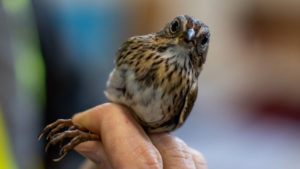
Tommy Thompson Park bird (credit Carlos Osorio at The Narwhal)
The Catch: News about the Lakes You Love
SEGMENT 3 | Pere Marquette, MI, Toronto, ON, Garden, MI
Keep up with the Great Lakes’ biggest issues. Find out how environmental challenges are impacting your enjoyment of the outdoors and the health of the ecosystem. Go beyond the headlines with reporters from around the region.
Learn about the lakes you love in Great Lakes Now’s newest segment – The Catch. This month, stories about whitefish, ecological resilience and ancient trees hiding in plain sight.
First up, Kurt Williams of Great Lakes Echo explains why lake whitefish, a native species in the Great Lakes, is experiencing what is known in the world of fisheries biology as a “recruitment problem.” This recruitment issue means that fewer young whitefish are making it to adulthood. Williams explains that the likely culprits are invasive species like zebra and quagga mussels.
Then, head to Toronto where Emma McIntosh of The Narwhal is reporting on a climate comeback story at Toronto’s Tommy Thompson Park. McIntosh investigates the history of the site, which used to be a landfill with a legacy of industrial pollution, and then looks at the resilience of the park in recent years. She also highlights the work being done at the park by conservation scientists who are studying and banding bird species who pass through the park during yearly migration.
Finally, Garret Ellison of MLive, talks about his recent trip to Michigan’s Upper Peninsula where he learned of ancient white cedars growing on the cliffs of Fayette Historic State Park. The trees were first discovered back in the 1990s by a group of scientists led by researcher Doug Larson, who learned that despite the modest size of the trees, they had been growing out of the cliffs for more than a thousand years, making them some of the oldest trees in eastern North America.
Here is other Great Lakes Now work on issues reported in this month’s “The Catch”:
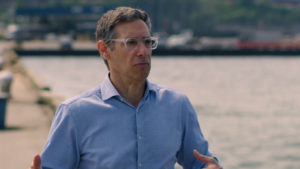
Will Friedman is the President and CEO of Port of Cleveland.
Shipping Constraints
SEGMENT 2 | Port of Cleveland, Port of Duluth-Superior
It is estimated that about 90 percent of non-bulk cargo worldwide is transported by container ships. In the United States, most of that cargo goes through ports along the Atlantic and Pacific Oceans.
But over the past few years supply chain disruptions have left ocean vessels stacked up on both coasts, and shippers are looking for new ways to get their goods to consumers in the heartland. Ports along the Great Lakes say they might be able to help.
Up until now, nearly all the shipping on the Great Lakes was bulk shipping, moving cargo like iron ore, grain, steel or coal. But, the Port of Cleveland saw an opportunity and developed the first container service on the Great Lakes to handle import and export cargo. In partnership with Dutch Company Spliethoff, they created the Cleveland Europe Express with a regularly scheduled route between Cleveland and Amsterdam.
According to Will Friedman, president and CEO of the Port of Cleveland, container shipping through the Great Lakes can be cheaper and more reliable. “It actually does help with the cost for a ship to come all the way into Cleveland because the longer you keep cargo on the water, the more economical it is,” he says.
The Port of Duluth-Superior is the Great Lakes port that handles shipping containers. Deb DeLuca, the executive director of the Duluth Seaway Port Authority, says that more shippers are considering the Port of Duluth to transport products. “From here you can reach major markets such as the Twin Cities, Fargo, Des Moines and Milwaukee and even down to Chicago so from a logistics standpoint, that’s very attractive,” he says.
But there are challenges to container shipping on the Great Lakes. Ship size is restricted by the locks of the St. Lawrence Seaway, and the locks are closed for a period of time during the winter months.
Still those in Great Lakes ports say there is great opportunity for growth in container shipping on the Great Lakes.
Here is more Great Lakes Now work on shipping:
Can shipping on the Great Lakes take the next step toward transporting high-value container cargo?
The 2022 Great Lakes shipping season sets sail after COVID-19 hurdles
Sustainable Shipping: The Port of Montreal’s role as the Great Lakes’ green gateway
Sustainable Shipping: At the Port of Milwaukee the wind blows toward a greener future
Sustainable Shipping: Burns Harbor port tries to green Indiana’s industrial coast
Videos from Episode 2207
Subscribe on YouTube
Featured Articles
Digital Credits
The Great Lakes Now Series is produced by Rob Green and Sandra Svoboda.


